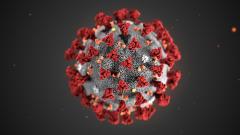Indications by the Conference of Rectors of the Italian universities

What's to know about CORONAVIRUS 2019-nCoV
It is a new coronavirus strain which causes a respiratory disease. The outbreak of coronavirus was identified in Wuhan, in the Chinese province of Hubei. Chinese health authorities reported thousands of cases across the country.
Coronaviruses can infect a number of pets and wild animals. Coronaviruses can be transmitted from animals to humans and then from humans to humans. This had happened, for example, with the viruses causing MERS and SARS.
Data about the coronavirus genomic characterization show that 2019-nCoV is a betacoronavirus and, like MERS and SARs, it may have its origin in bats. For more information, visit the CDC web site: https://www.cdc.gov/coronavirus/index.html.
Please follow the virus outbreak through the official channel of the Ministry of Health http://www.salute.gov.it/portale/nuovocoronavirus/homeNuovoCoronavirus.jsp (in Italian)
This webpage provides useful and updated information about the contagion and aims at protecting our community's health.
FAQs about Coronavirus 2019-nCoV outbreak
How does the coronavirus spread?
Human to human contagion mainly happens via respiratory droplets produced when an infected person coughs or sneezes, like how influenza and other respiratory pathogens spread. Similarly, to SARS and MERS, the human to human spread has been confirmed through close contact.
Symptoms
2019-nCoV infections may result in symptoms ranging from mild (80% of cases), to severe (20% of cases) with possible death in a very small proportion of cases (2%). Symptoms may appear from to 2 to 14 days after exposure and include:
- Fever
- Cough
- Shortness of breath
Prevention
The World Health Organization recommends the following hygiene practices and preventive actions (go to webpage):
- Frequently clean your hands by using alcohol-based hand rub or soap and water;
- When coughing and sneezing cover your mouth and nose with flexed elbow or tissue – throw the tissue away immediately and wash your hands;
- Avoid close contact with anyone who has fever and cough;
If you have fever, cough and difficulty breathing seek medical care early and share previous travel history with your health care provider.
Is it safe for staff members and students to travel to China?
Italian Government has decided to temporarily avoid traveling to China until further notice.
The reason for this alert resides not only in the 2019-nCoV infection risk, but also in the unpredictable nature of the outbreak. Indeed, there is a connected risk of social disorders in the outbreak-affected areas which could make the return journey impossible.
Recommendation for students and staff members coming back from China
If you are experiencing some of the symptoms (fever, cough, shortness of breath) you should:
- immediately see a doctor or call the toll-free telephone 1500 of the Italian Ministry of Health.
- Avoid close contacts with other people and do not go to crowded places;
- Students are recommended not to attend classes or other activities if they are experiencing some symptoms.
If you are not experiencing any of the symptoms:
- Monitor your body temperature every day
- In case of an increased body temperature should immediately see a doctor or call the toll-free telephone 1500 of the Italian Ministry of Health.
- Students with no symptoms may participate to activities and classes with no limitations and without the need to wear a mask.
Recommendation for visiting scholars, researchers and staff members from China
Chinese visitors should monitor their health status carefully by taking their temperature and watching for other possible symptoms during the first 14 days after leaving from China and should see a doctor in case of illness.
